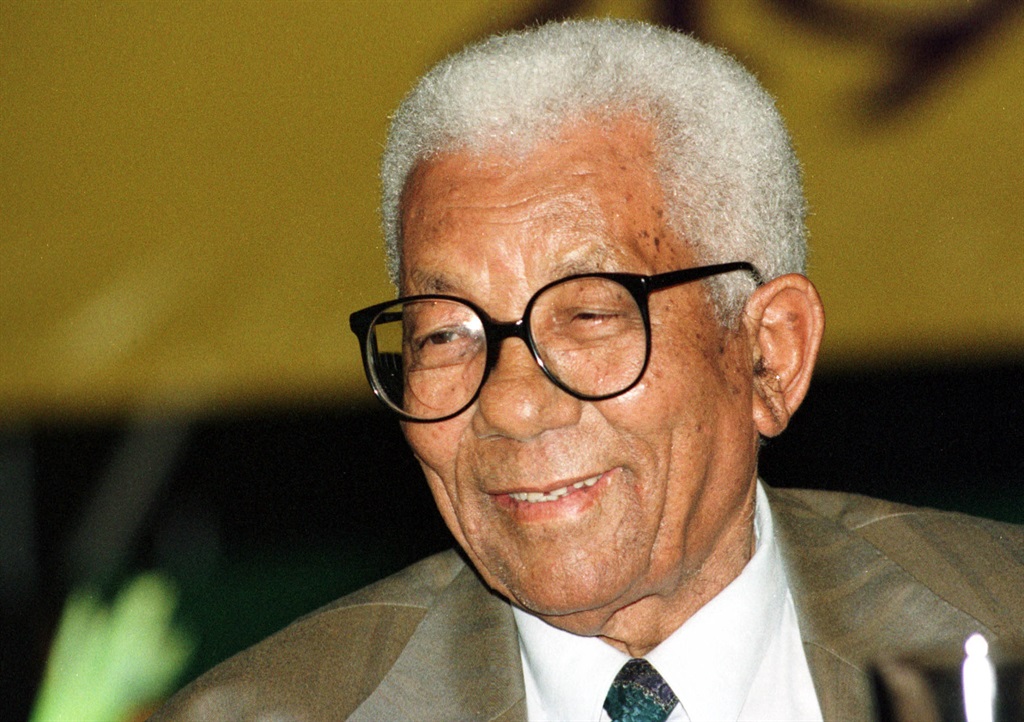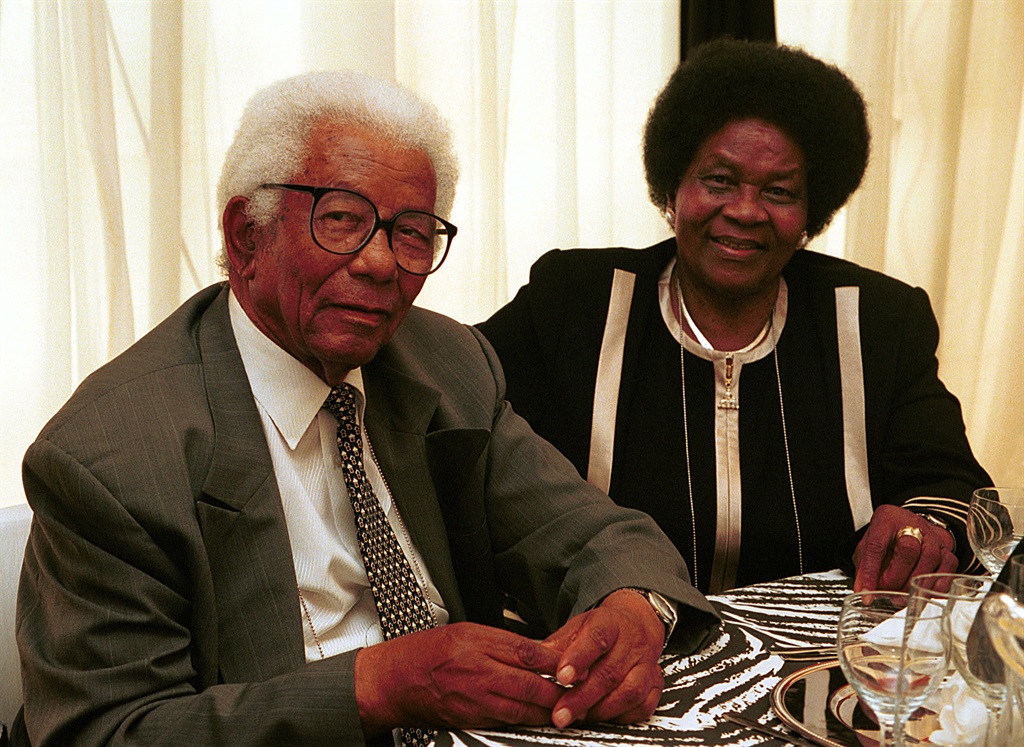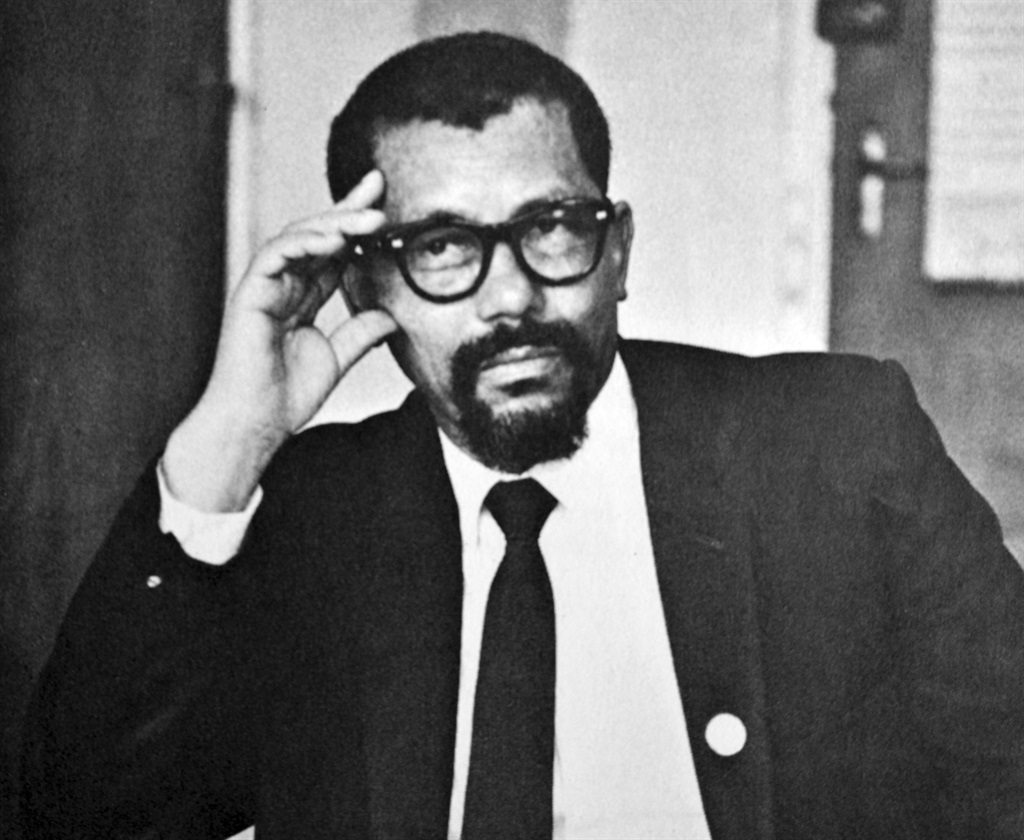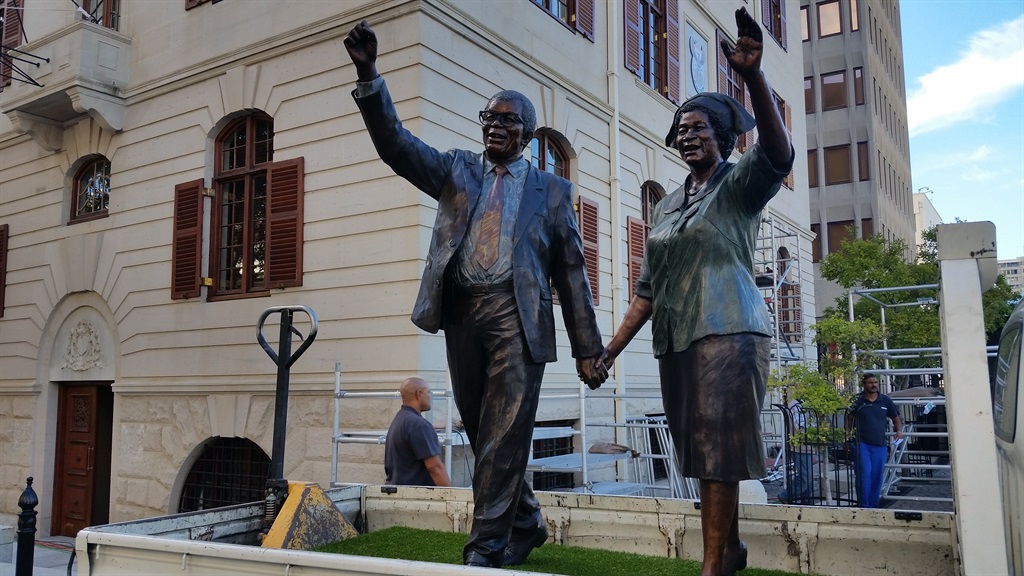
From his humble beginnings in the Engcobo area of the Transkei to his influential involvement in the ANC, Walter Sisulu’s indomitable spirit and unwavering commitment to justice and equality ensured that his name would forever be etched into the history of South Africa.
EARLY LIFE AND BACKGROUND
Walter Max Ulyate Sisulu was born on May 18 1912, the same year the ANC was founded.
His life would become inextricably intertwined with that of the liberation party, and the struggle for freedom and equality in South Africa.
Sisulu’s mother, Alice, worked away from home and had to leave the young Walter in the care of his aunt Agnes.
From early on, he was exposed to the works of Jamaican political activist Marcus Garvey, planting the seeds for his later consciousness and activism.
He left school at 15 years old and in the following years he would occupy various occupations, including working as a miner, a baker’s assistant, domestic helper and factory hand. These experiences fostered his deep understanding of the struggles faced by workers and the injustices that were prevalent in society.
Sisulu’s commitment to effecting change led him to join the ANC in 1940, and from the moment he stepped into the party fold, his natural leadership abilities and organisational skills were evident.
FORGING THE FUTURE OF THE ANC
In 1941, Sisulu met Nelson Mandela for the first time and assisted the young Madiba to find his feet and get a job in the legal profession when the latter arrived in Johannesburg from the Transkei.
The following year he met one of the ANC’s founding members, Pixley Seme, while they were both on a train to the ANC’s annual conference in Bloemfontein.
Sisulu’s journey as a political leader soon gained momentum when he co-founded the ANC Youth League (ANCYL) in 1944, the same year in which he married Albertina. The two would remain inseparable until his death.
SACRIFICE AND IMPRISONMENT
The founding of the ANCYL would be a pivotal moment in the history of the ANC, as it set the party on a much more militant path against the oppressive apartheid regime.
In July of 1951, Sisulu attended a secret meeting of representatives of the ANC and the SA Indian Congress in Johannesburg, where it was decided to step up the defiance campaign they had initiated in the previous year against the apartheid government.
While the first phase involved mass stayaway drives, they decided that phase two, which was to commence in 1952, would address an ultimatum to the government to repeal all discriminating legislation before or/on February 29 1952. Failure to do so would result in countrywide mass action.
Sisulu spent 1952 traveling throughout the country and agitating for change.
He, along with Yusuf Cachalia, served as joint secretaries of the National Action Council which courted volunteers for the Defiance Campaign and saw 8 500 volunteers sent to prison.
On April 21 1952, Sisulu, Dr Yusuf Dadoo, AM Dadoo and Cachalia were detained at Idutywa in the Transkei for entering the area without the necessary permission.
In August of the same year, Sisulu and several others were arrested on a charge under the Suppression of Communism Act, but this did not deter him, as in December he was arrested again for his continued organisation.
He was convicted a second time and sentenced to nine months’ imprisonment, conditionally suspended for three years.
In the same month, he was served a notice under the Suppression of Communism Act, which prohibited him from attending any meetings within South Africa for a period of six months. Shortly thereafter he left the country and traveled to several countries in Eastern Europe.
The pursuit of justice and equality came at a great personal cost for Sisulu.
In the years following his return from Europe, he was arrested numerous times and faced several banning orders under the Suppression of Communism Act, and for the following few years he spent almost as much time in prison as outside of it due to his refusal to stop organising.
His influential role in shaping the ANC’s direction continued to expand as he, along with Mandela, became instrumental in the establishment of Umkhonto weSizwe, the armed wing of the ANC, in 1961.
In April 1963, Sisulu was placed under 24 hours house arrest, but while awaiting the outcome of an appeal against a six-year prison sentence he decided to forfeit his R6 000 bail and go underground.
His exact whereabouts were unknown until June 26, when he spoke on Freedom Radio from Botswana and urged the youth to join the forces and against the apartheid regime.
A month later, on July 11, Sisulu was among those captured at Liliesleaf Farm, Rivonia, Johannesburg. He was offered freedom during interrogation in exchange for information against his comrades, but refused to turn.
After 88 days in detention, on October 9, Sisulu, Mandela, Govan Mbeki, Ahmed Kathrada, Rusty Bernstein, Dennis Goldberg, James Kantor, Andrew Mlangeni, Elias Motsoaledi, Ramond Mhlaba and Bob Hepple were all charged with sabotage and attempting to overthrow the state violently.
In addition, his previous six-year prison sentence was upheld after his appeal was dismissed and he was ordered to start his sentence. Meanwhile, Albertina was also placed under banning orders which remained in effect until 1983.
The Rivonia Trial concluded on June 12 1964 and Sisulu, along with his co-accused, were all flown to Robben Island in the Western Cape the very same day to start their life sentences, after being found guilty of sabotage, conspiracy to sabotage and the furtherance of the goals of banned organisations – the ANC and the Communist Party of SA
Albertina would raise their five children on her own until Walter’s eventual release from prison.
RELEASE AND CONTINUED IMMERSION IN THE STRUGGLE
After 26 years in prison, Sisulu and his fellow Rivonia Triallists were released on October 15 1989.
Sisulu, along with Kathrada, Mlangeni, Motsoaledi, Mhlaba and Wilton Mkwayi were released with veteran ANC and SA Communist Party Cape leader Oscar Mpetha and Pan Africanist Congress of Azania leader Japhta Masemola.
The then 77-year-old Sisulu went on to play a crucial role in the 1990 to 1993 negotiations between the South African liberation movements and the apartheid government, and continued to be active in ANC politics.
In 1991, he was elected as ANC deputy president to avoid a potentially divisive contest between Thabo Mbeki and Chris Hani.
On January 8 1992, Sisulu was awarded the the ANC’s highest honour, Isitwalandwe Seaparankoe, for his contribution to the struggle for liberation and later that year he addressed the 10th Summit of the Non-Aligned Movement in Jarkata, Indonesia, appealing for continued pressure on the apartheid government.
He finally retired from active politics in 1994 due to poor health, but he remained active in the ANC after his term as deputy president ended.
In April of that year, Walter and Albertina Sisulu celebrated the electoral victory of the ANC at the polls, bringing their lifelong fight against the apartheid regime to a resounding close.
Sisulu and his wife lived in Soweto for most of their lives, but moved to a new house in Linden, northern Johannesburg, in 1999. They lived there until May 5 2003, a few days before his 91st birthday, when Sisulu collapsed on his way to bed and died in his wife’s arms.




 Publications
Publications
 Partners
Partners













